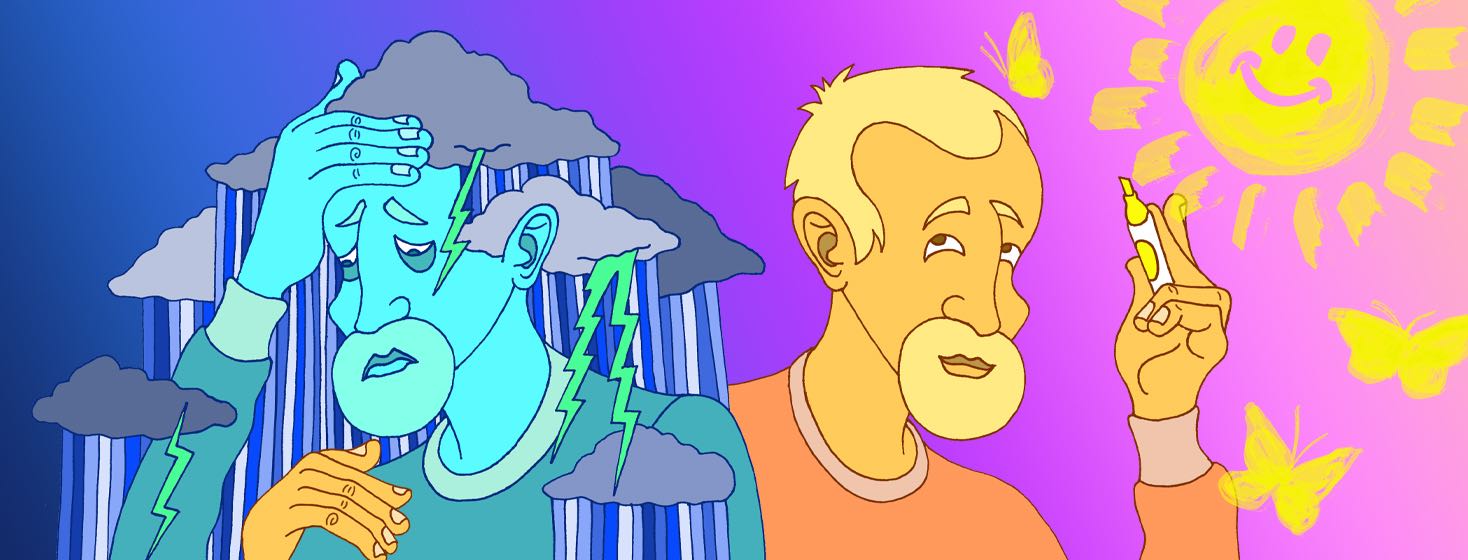The Things I've Learned
Reading an article written by a trainee cancer doctor from the U.S. about how important it is for healthcare professionals to learn from their patients inspired me to think about the things that I’ve learned since my stage 4 prostate cancer diagnosis, nearly 6 years ago now.
Having a breakdown after my diagnosis
I really struggled at the start. Being told that you’ve got cancer is devastating – being told that it’s incurable is indescribable. I literally spent the first 18 months feeling sorry for myself, thinking way too much about dying. This anxiety ultimately led to depression. When my 54-year-old sister was admitted to a hospice for end-of-life care for breast cancer, coupled with some business problems, I lost the ability to function rationally and had a breakdown.
Thankfully I was strong enough to realize that I needed help, and I knew where to look for it. I spent 2.5 hours crying my heart out to a case worker who was amazing. She listened, helped, supported, and arranged for some psychological help, which brought me back to the now and lifted the veil of darkness.
I learned from that episode to live in the moment, live for now, and try to enjoy every minute of life. I think I’ve managed to do that most of the time. I also learned that seeking help is not a sign of weakness, it’s a sign of strength!
Learning to never give up hope
As stage 4 cancer patients, we know that our HCPs are trying to keep us alive as long as possible in the hope that new treatments, maybe even curative ones, may come along to extend our lives even further. The “teachable moment” from this was never ever to give up hope as, without hope, we are hopeless.
In the early days when the dark moments were frequent, life was often incredibly challenging. Outwardly, my friends and family saw the bubbly, outgoing, reasonably okay Tony. But my wife, bless her, saw me when I was down and in floods of tears. It was obvious that this couldn’t continue. We discussed things at a support centre whose founder said: “We should never lose the joy of living through the fear of dying.” Hearing this helped me enormously, and I realized how badly I’d got things wrong.
I know that I lost my sense of self-esteem and worth. For goodness sake, I even told my wife to go and find someone else to look after her because I wasn’t going to be around to do it. As you can imagine, that didn’t go down well!
Using my voice to help others
The thing I learned from this was that I’m a reasonably confident person, a decent communicator, and that the patient voice is so important. Using that patient voice for the benefit of others helped me to regain my self-esteem and worth, and I’ve written about that in other articles.
I learned that a prostate cancer diagnosis affects more people than just the patient and, in particular, how much it affected my wife.
I was diagnosed at age 60. Treatment led to complete loss of libido and erectile function, which of course had quite a profound affect on our relationship. If anything, it made it stronger and better. We did need support from a psychosexual therapist (shameful that this isn’t available for all men), and I learned from that that my treatment may have led to me losing my drive. But it didn’t remove my desire!
Another important takeaway for me
Finally, I had always worked long hours building a business and perhaps neglecting my family to a degree. When I thought about that in the context of my diagnosis, I realized that I hadn’t got it entirely right.
Now when I do talks and speeches, I often talk to career people about making sure that they get the balance right between obligations and desires. I much prefer that way of expressing it than work/life balance, because even in our every-day life we have obligations such as to care for elderly parents or look after grandchildren.
In closing I hope that the reader can learn something from what I’ve written. I’d ask others with a diagnosis to tell me about the things that they’ve learned since that diagnosis.

Join the conversation